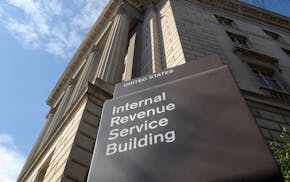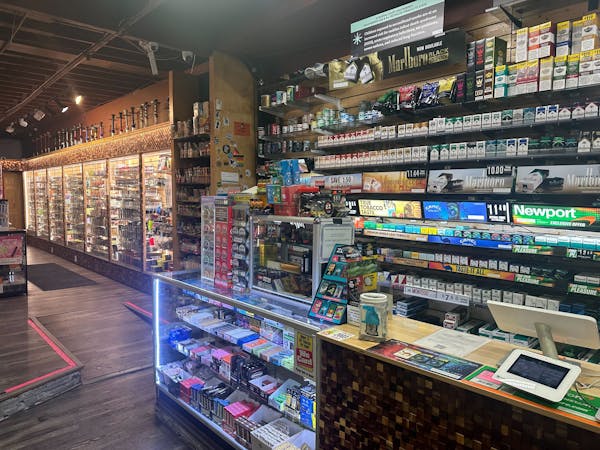RACIAL ISSUES
Stop assuming, start listening
In the wake of the George Zimmerman verdict, it has been interesting how many people who are not black have suddenly become experts on being black. For these "experts," black people have a culture of "victimhood." They know this normally based on the uninformed opinion of talk-radio hosts and despite the fact that they might not have a meaningful relationship with a single black person.
While black people have problems (just like all people), the vast majority of us don't see ourselves as victims. As much as people like to trot out the negative statistics, there is also the amazing rise of the black middle class in the last 50 years and the almost routine breakdown of barriers.
I often hear people say we need to have a national discussion about race, but until people stop assuming and start listening, it will not accomplish anything but a shouting match.
Craig Hewitt, Crystal
• • •
CITY-RUN UTILITIES
Remember, the city didn't want to do Wi-Fi
There is talk that Minneapolis may take over the services of Xcel Energy and CenterPoint Energy. I personally agree with the idea of public ownership of utilities. What I've never understood is why the Minneapolis City Council, under the leadership of Mayor R.T. Rybak, basically gave away what should have been publicly owned. In 2006, Wi-Fi was a technology waiting to be born, but the council and Rybak rejected city ownership. Now the council seems to be in favor of taking over long-established utilities.
The Wi-Fi contract ended up going to US Internet. The development has been less than remarkable. There are many dead spots, including City Hall. Wi-Fi is pretty much useless to the police and firefighters.
In 2011, the same US Internet began building a high-speed fiber-optic network in the city. Just as with Wi-Fi, fiber-optic has been far from a success. Two and a half years after starting the fiber-optic service, less than 20 percent of the city has such service.
If the city does take over Xcel and CenterPoint, I certainly hope it can manage these utilities better than a private company does with the service we gave away in 2006.
GREGORY STRICHERZ, Minneapolis
• • •
I live in an 800-square-foot loft apartment. Heat is included in my rent, and I use the air conditioning sparingly. My electric charges from Xcel Energy for the last 12 months are 51 percent higher than they were for the same period seven years ago. While I am not a big fan of the government running anything, in this case I'd be willing to take my chances.
MARK WEBER, Minneapolis
• • •
Xcel's Sherco coal power plant contributes millions of tons of carbon annually. The Minneapolis City Council needs to raise the bar, because left to short-term profits, Xcel will only do the minimum required. It is the job of our public institutions to hold private corporations accountable to the public good.
GERRY TYRRELL, Minneapolis
• • •
The city would be assuming ownership and operation of extremely complicated and critical infrastructure. This would be an enormous burden, and the stakes would be high.
Furthermore, the City Council's stated goal of increasing the city's use of green energy is great, but what does that have to do with who owns the poles, the wires and the meters? Does the council plan on constructing renewable-resource power plants within the city? The whole thing is silly, and municipalization will not save residents money. In fact, it will cost more.
However, as a resident of St. Paul, I am cheering for this plan. I would be thrilled to see Xcel Energy take its corporate headquarters and 2,000 jobs to my downtown.
SUE PETERSON, St. Paul
• • •
LIGHT RAIL
Southwest proposal has skewed priorities
Last year's Southwest Corridor light-rail proposal has three of 17 stations with freight tracks immediately adjacent. If a switch to freight colocation between Louisiana and Penn Avenues is approved (which seems to be how the Metropolitan Council is leaning), the number of stations with immediately adjacent freight tracks would jump to seven.
Transit stations are supposed to be places for people, intended to stimulate pedestrian- and transit-oriented development, which is incompatible with freight tracks and trains. Combining this contemplated change with the plan to spend tens of millions of dollars on park-and-ride facilities would turn our metro area's agreed-upon hierarchy upside down.
Let's take a step back from the tunnel vision of colocating freight and digging a (shallow or deep) light-rail tunnel through part of the Kenilworth area just to get the thing built. Doing light rail right means putting the needs of pedestrians and bicyclists ahead of freight trains and automobiles.
JEFFREY PELTOLA, Minneapolis
• • •
The latest cost projections for the Southwest Corridor project have jumped to $1.82 billion. The Midtown Greenway (a k a Uptown) route was rejected because its projected cost was $1.5 billion, which is starting to look like a bargain. Isn't it time for the planners to go back to the drawing board and consider that option, which has the added advantage of running through much denser population areas?
NANCY BEACH, Minneapolis
Readers Write: Politicized education, presidential debates, election strategies, small-town papers

Taxes increasingly paying for the past — not the future
!["Since the [Hennepin Healthcare System] Board took control in 2007, CEO pay increased by more than 142%. Meanwhile, that same board sunsetted employee](https://arc.stimg.co/startribunemedia/J7MD7DSJWMP3KYIYUSCQTABOAA.jpg?h=91&w=145&fit=crop&bg=999&crop=faces)

